Recent Blog Posts
The Impact of Social Media on Criminal Defense Strategies in Illinois
 Social media has become an integral part of our daily lives. However, its prevalence has also had a significant impact on the legal system, particularly with criminal defense. An Illinois lawyer can help you understand how social media can affect criminal defense strategies and adapt accordingly to best serve your case.
Social media has become an integral part of our daily lives. However, its prevalence has also had a significant impact on the legal system, particularly with criminal defense. An Illinois lawyer can help you understand how social media can affect criminal defense strategies and adapt accordingly to best serve your case.
The Role of Social Media in Criminal Investigations
Law enforcement agencies have increasingly turned to social media as a tool for gathering evidence in criminal investigations. In Illinois, courts have consistently held that information shared on public social media profiles can be used as evidence in criminal proceedings. This means that posts, photos, and even private messages obtained through legal means can be admissible in court.
As a criminal defense lawyer, it is essential to thoroughly review a client’s social media presence and advise them on the potential implications of their online activity. Incriminating posts or images can be used by prosecutors to establish motive, opportunity, or even guilt.
What Are the Penalties for Meth-Related Drug Crimes in Illinois?
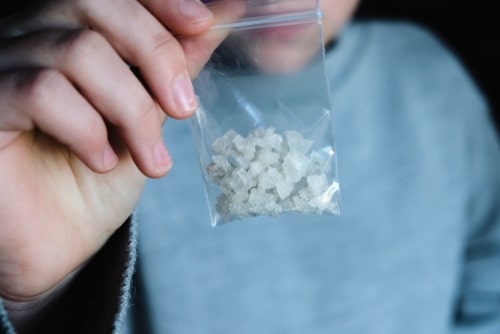 Methamphetamine, which is often referred to as meth, is a stimulant that can be very addictive. Due to its potential for abuse, the state of Illinois has implemented strict laws and penalties to address the possession, distribution, and manufacturing of methamphetamines. If you or a loved one are facing drug charges related to methamphetamines in Joliet or Will County, it is crucial to understand the legal implications, the potential penalties, and the strategies that may be used to defend against a conviction. An experienced attorney can help you navigate these complex legal waters, working to protect your rights and resolve your case successfully.
Methamphetamine, which is often referred to as meth, is a stimulant that can be very addictive. Due to its potential for abuse, the state of Illinois has implemented strict laws and penalties to address the possession, distribution, and manufacturing of methamphetamines. If you or a loved one are facing drug charges related to methamphetamines in Joliet or Will County, it is crucial to understand the legal implications, the potential penalties, and the strategies that may be used to defend against a conviction. An experienced attorney can help you navigate these complex legal waters, working to protect your rights and resolve your case successfully.
Meth-Related Crimes in Illinois
Methamphetamine offenses are taken seriously in Illinois, with the law imposing severe penalties for possession, distribution, and manufacturing. The severity of these penalties typically depends on the quantity of the drug involved, the offender's criminal history, and other factors. Offenses related to methamphetamines may include:
When Is a Restricted Driving Permit Required After an Illinois DUI?
 Facing a DUI charge in Illinois can be a daunting experience. From the moment you are pulled over by police, you may be worried about how breathalyzer tests or field sobriety tests will be used against you and whether you may face penalties such as fines and jail time. One of your key concerns will likely be the impact of DUI charges on your driver’s license
Facing a DUI charge in Illinois can be a daunting experience. From the moment you are pulled over by police, you may be worried about how breathalyzer tests or field sobriety tests will be used against you and whether you may face penalties such as fines and jail time. One of your key concerns will likely be the impact of DUI charges on your driver’s license
Illinois law takes DUI offenses seriously, and your license may be suspended or revoked due to a failed blood alcohol test, the refusal to take this type of test, or a conviction on DUI charges. Fortunately, you may be able to qualify for a Restricted Driving Permit (RDP) and regain some level of driving capability. Understanding when an RDP is required and how to apply for one may be important for you, since it can help you avoid difficulty in your life and ensure that you will be able to maintain employment and complete other daily tasks that require driving. An experienced attorney can offer guidance and support as you defend against DUI charges and address other related legal issues, ensuring that you explore every option for defense while helping you find solutions that will provide for your ongoing needs.
When Can Carrying a Gun Lead to Unlawful Use of a Weapon Charges?
 With the Second Amendment granting the right to bear arms, many people in Illinois and other parts of the United States choose to exercise this right by possessing and carrying firearms for protection. However, it is crucial for all firearm owners to understand that there are specific laws and regulations governing the carrying of guns. Failing to comply with these laws can lead to serious charges, such as unlawful use of a weapon (UUW). If you are facing weapons charges, an experienced attorney can help you understand how Illinois law applies in your situation and how you can defend against a conviction while protecting your Second Amendment rights.
With the Second Amendment granting the right to bear arms, many people in Illinois and other parts of the United States choose to exercise this right by possessing and carrying firearms for protection. However, it is crucial for all firearm owners to understand that there are specific laws and regulations governing the carrying of guns. Failing to comply with these laws can lead to serious charges, such as unlawful use of a weapon (UUW). If you are facing weapons charges, an experienced attorney can help you understand how Illinois law applies in your situation and how you can defend against a conviction while protecting your Second Amendment rights.
Concealed Carry Laws in Illinois
In 2013, Illinois became the last state in the United States to enact legislation allowing residents to carry concealed handguns. The law provides guidelines on who can obtain a concealed carry license (CCL) and under what circumstances they are allowed to carry concealed firearms while outside their homes or businesses.
Are Assault and Battery Treated as Separate Charges in Illinois?
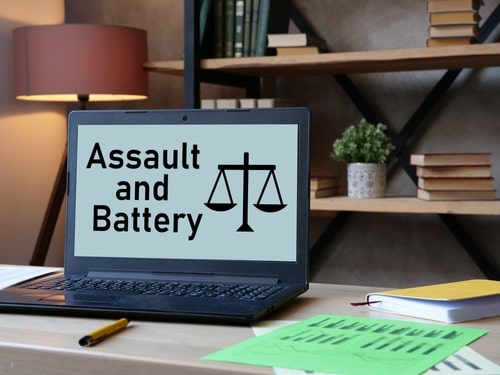 While assault and battery are two common terms often used together when discussing criminal charges, they are actually treated as two separate offenses in Illinois. Many people may not fully understand the differences between these two offenses. If you have been accused of these offenses or related crimes, an experienced attorney can provide guidance on how Illinois law will apply in your case and how you can defend against a conviction.
While assault and battery are two common terms often used together when discussing criminal charges, they are actually treated as two separate offenses in Illinois. Many people may not fully understand the differences between these two offenses. If you have been accused of these offenses or related crimes, an experienced attorney can provide guidance on how Illinois law will apply in your case and how you can defend against a conviction.
Defining Assault
In Illinois, assault is defined as a specific act that causes another person to reasonably believe that they will be subject to harmful or offensive contact. It is important to note that physical contact does not need to occur for an action to be considered assault.
Assault charges will generally involve the following elements:
Will a DUI Resulting in Injury Be Charged as a Felony in Illinois?
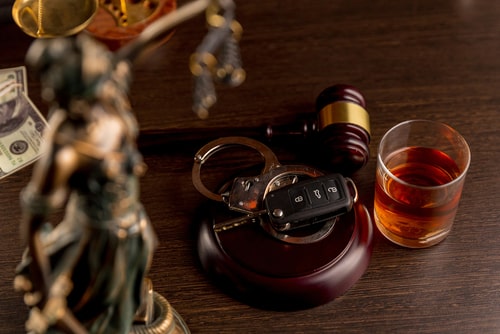 Driving under the influence (DUI) is a serious offense in Illinois. A person who is arrested for drunk or intoxicated driving and convicted on DUI charges will face numerous penalties, including the loss of their driver’s license, thousands of dollars in fines and court costs, the requirement to use an ignition interlock device when driving, and potential jail time, even for a first offense. However, when a DUI offense results in injury to another person, the consequences may become even more severe. For those who have been charged with DUI involving injuries to others, it is crucial to work with an attorney who can provide a strong defense during criminal proceedings.
Driving under the influence (DUI) is a serious offense in Illinois. A person who is arrested for drunk or intoxicated driving and convicted on DUI charges will face numerous penalties, including the loss of their driver’s license, thousands of dollars in fines and court costs, the requirement to use an ignition interlock device when driving, and potential jail time, even for a first offense. However, when a DUI offense results in injury to another person, the consequences may become even more severe. For those who have been charged with DUI involving injuries to others, it is crucial to work with an attorney who can provide a strong defense during criminal proceedings.
Felony vs. Misdemeanor DUI
In general, felonies are more serious crimes than misdemeanors, and they carry harsher penalties, including prison sentences of one year or more. Misdemeanors typically carry less severe punishments, including sentences ranging from a few days to less than one year. In Illinois, first-time and second-time DUI cases will usually be prosecuted as misdemeanors. However, when certain circumstances are present, aggravated DUI charges may apply, and a person may face felony charges.
When Can I Expunge or Seal My Criminal Record in Illinois?
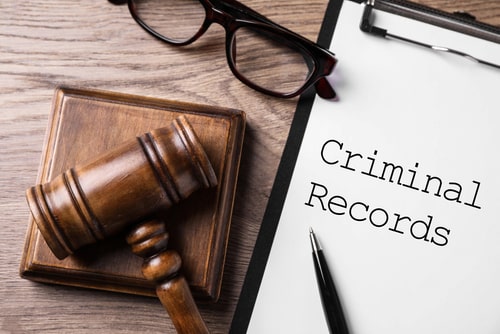 If you have been arrested, charged with a crime, or convicted of a misdemeanor or felony offense, you may have a criminal record that can cause a great deal of difficulty in your life. Arrests, convictions, or other related information may show up in criminal background checks, affecting your ability to obtain a job or secure housing. Other areas of your life may also be affected, such as your ability to receive government benefits or pursue education. If you are dealing with records related to previous brushes with the law, you may be wondering if there is any way to clear your name and start fresh.
If you have been arrested, charged with a crime, or convicted of a misdemeanor or felony offense, you may have a criminal record that can cause a great deal of difficulty in your life. Arrests, convictions, or other related information may show up in criminal background checks, affecting your ability to obtain a job or secure housing. Other areas of your life may also be affected, such as your ability to receive government benefits or pursue education. If you are dealing with records related to previous brushes with the law, you may be wondering if there is any way to clear your name and start fresh.
Fortunately, the state of Illinois offers options to seal or expunge criminal records in certain cases. Doing so can provide many benefits, including improved job prospects, housing opportunities, and peace of mind. An experienced attorney can help you determine your options for addressing your criminal record and receiving the fresh start you deserve.
When Can Drug Possession Lead to Felony Charges in Illinois?
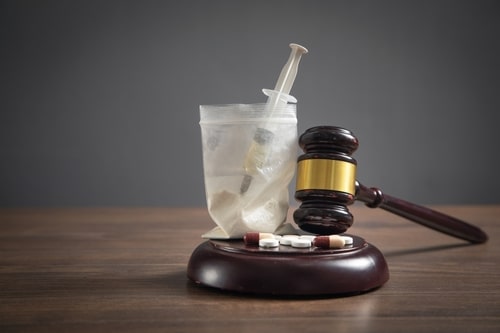 Drug possession is a serious offense that can have long-lasting consequences. In the state of Illinois, drug possession charges can range from misdemeanors to felonies. There are various factors that can affect the severity of drug charges, such as the type and amount of drugs involved, the intent to sell or distribute drugs to others, and a person’s prior criminal record. If you have been arrested for drug possession, an experienced attorney can provide you with legal representation and help you understand your options for defense.
Drug possession is a serious offense that can have long-lasting consequences. In the state of Illinois, drug possession charges can range from misdemeanors to felonies. There are various factors that can affect the severity of drug charges, such as the type and amount of drugs involved, the intent to sell or distribute drugs to others, and a person’s prior criminal record. If you have been arrested for drug possession, an experienced attorney can provide you with legal representation and help you understand your options for defense.
Misdemeanor vs. Felony
In Illinois, drug possession offenses are typically classified as felonies, although there are certain situations where misdemeanor charges may apply. Misdemeanors are less serious crimes and generally carry lighter penalties than felonies. Felonies, on the other hand, are more severe offenses with consequences that include prison sentences of one year or more and fines of up to $25,000.
Preparing for Your Illinois License Reinstatement Hearing
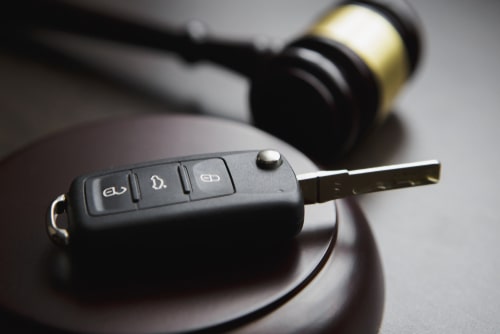 An Illinois license reinstatement hearing is a crucial step in regaining your driving privileges after a suspension or revocation. Understanding what takes place during the hearing and the significance of having legal representation can greatly impact the outcome of the hearing. If your license has been suspended as a result of multiple DUI convictions, obtain legal representation from a qualified attorney ready to safeguard your interests. While hiring a lawyer does not guarantee your license will be reinstated, it does ensure that you will have a fair chance at reobtaining your driving privileges.
An Illinois license reinstatement hearing is a crucial step in regaining your driving privileges after a suspension or revocation. Understanding what takes place during the hearing and the significance of having legal representation can greatly impact the outcome of the hearing. If your license has been suspended as a result of multiple DUI convictions, obtain legal representation from a qualified attorney ready to safeguard your interests. While hiring a lawyer does not guarantee your license will be reinstated, it does ensure that you will have a fair chance at reobtaining your driving privileges.
The Hearing Process
During an Illinois license reinstatement hearing, a hearing officer from the Secretary of State’s office will evaluate your case. The hearing officer will review your driving record, the reason for your license suspension or revocation, and any relevant documentation you submit. They may also ask you questions about your driving history, alcohol or drug use, and efforts made toward rehabilitation. Ultimately, the purpose of the hearing is to determine whether you have met the requirements for reinstatement and if you are fit to drive responsibly.
Addressing Domestic Violence Accusations During the Holidays
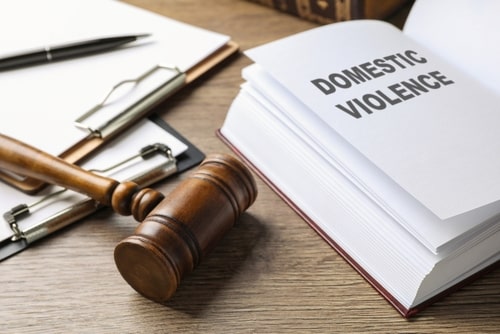 The holiday season is meant to be when families can enjoy being with each other, give gifts, and share positive experiences and memories. However, for some families, the holidays can be a period of heightened stress and tension, which may lead to arguments, conflicts, and accusations of domestic violence. If you have been accused of committing violence against members of your family, or if you have been arrested and charged with domestic battery, it is crucial to seek legal guidance immediately from an attorney who has experience representing clients in these types of cases.
The holiday season is meant to be when families can enjoy being with each other, give gifts, and share positive experiences and memories. However, for some families, the holidays can be a period of heightened stress and tension, which may lead to arguments, conflicts, and accusations of domestic violence. If you have been accused of committing violence against members of your family, or if you have been arrested and charged with domestic battery, it is crucial to seek legal guidance immediately from an attorney who has experience representing clients in these types of cases.
Domestic violence may include physical abuse, emotional abuse, sexual assault or harassment, financial manipulation, and other harmful behaviors within intimate relationships or family settings. False allegations of domestic violence can have severe consequences on your personal life, professional reputation, and legal status. By understanding the best ways to address these accusations, you can protect your reputation, your family relationships, and your freedom.

















